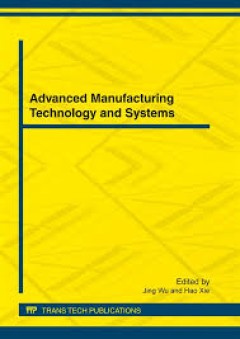Filter by

Advanced Materials and Technologies in Nanogenerators
Abstract This reprint discusses the various applications, new materials, and evolution in the field of nanogenerators. This lays the foundation for the popularization of their broad applications in energy science, environmental protection, wearable electronics, self-powered sensors, medical science, robotics, and artificial intelligence.
- Edition
- -
- ISBN/ISSN
- 9783036559018
- Collation
- -
- Series Title
- -
- Call Number
- -

Advanced Materials and Technologies for Fuel Cells
Abstract Fuel cells are expected to play a relevant role in the transition towards a sustainable-energy-driven world. Although this type of electrochemical system was discovered a long time ago, only in recent years has global energy awareness, together with newly developed materials and available technologies, made such key advances in relation to fuel cell potential and its deployment. It is…
- Edition
- -
- ISBN/ISSN
- 9783036505398
- Collation
- -
- Series Title
- -
- Call Number
- -

Advanced Materials and Nanotechnology for Sustainable Energy and Environmenta…
Abstract Materials play a very important role in the technological development of a society. As a consequence, the continuous demand for more advanced and sophisticated applications is closely linked to the availability of innovative materials. Although aspects related to the study, the synthesis and the applications of materials are of interdisciplinary interest, in the last few years, great …
- Edition
- -
- ISBN/ISSN
- 9783036552309
- Collation
- -
- Series Title
- -
- Call Number
- -

Advanced Material and Device Applications with Germanium
Abstract Germanium is an elemental semiconductor, which played an important role in the birth of the semiconductor but soon was replaced with silicon. However, germanium is poised to make a remarkable comeback in the semiconductor industry. With this increasing attention, this book describes the fundamental aspects of germanium and its applications. The contributing authors are experts in thei…
- Edition
- -
- ISBN/ISSN
- 9781838817244
- Collation
- -
- Series Title
- -
- Call Number
- -

Advanced Manufacturing Technology and Systems
Abstract Advanced manufacturing technology and systems cover a broad scope involving manufacturing processes, machine tool design, system optimization, smart and flexible manufacturing, theoretical study and metrology. This reprint comprises 19 original papers concerning recent advances in the research and development of AMTSs. Specifically, there are many research fields that are covered: mac…
- Edition
- -
- ISBN/ISSN
- 9783036577906
- Collation
- -
- Series Title
- -
- Call Number
- -

Advanced Magnetic Nanocomposites
Abstract This book is a collection of research articles and review articles, which was published in the Special Issue "Advanced Magnetic Nanocomposites: Structural, Physical Properties and Application". This book ‘‘Advanced Magnetic Nanocomposites: Structural, Physical Properties and Application’’ discussed recent development on advanced magnetic nanoparticles and nanocomposites with d…
- Edition
- -
- ISBN/ISSN
- 9783036531434
- Collation
- -
- Series Title
- -
- Call Number
- -

Advanced Magnetic Materials
Abstract This book reports on recent progress in emerging technologies, modern characterization methods, theory and applications of advanced magnetic materials. It covers broad spectrum of topics: technology and characterization of rapidly quenched nanowires for information technology; fabrication and properties of hexagonal ferrite films for microwave communication; surface reconstruction of …
- Edition
- -
- ISBN/ISSN
- 9789535162131
- Collation
- -
- Series Title
- -
- Call Number
- -

Advanced Macroeconomics
Abstract Macroeconomic policy is one of the most important policy domains, and the tools of macroeconomics are among the most valuable for policy makers. Yet there has been, up to now, a wide gulf between the level at which macroeconomics is taught at the undergraduate level and the level at which it is practiced. At the same time, doctoral-level textbooks are usually not targeted at a policy …
- Edition
- -
- ISBN/ISSN
- 9781909890718
- Collation
- -
- Series Title
- -
- Call Number
- -

Advanced Machine Learning Applications in Big Data Analytics
Abstract With the development of computer technology and communication technology, various industries have collected a large amount of data in different forms, so-called big data. How to obtain valuable knowledge from these data is a very challenging task. Machine learning is such a direct and effective method for big data analytics. In recent years, a variety of advanced machine learning tech…
- Edition
- -
- ISBN/ISSN
- 9783036584874
- Collation
- -
- Series Title
- -
- Call Number
- -

Advanced Machine Learning and Deep Learning Approaches for Remote Sensing
Abstract This reprint provides research on how technologies such as artificial intelligence-based machine learning and deep learning can be applied to remote sensing. Through this, we can see the process of solving the existing problems of image and image signal processing for remote sensing. These techniques are computationally intensive and require the help of high-performance computing devi…
- Edition
- -
- ISBN/ISSN
- 9783036579474
- Collation
- -
- Series Title
- -
- Call Number
- -
 Computer Science, Information & General Works
Computer Science, Information & General Works  Philosophy & Psychology
Philosophy & Psychology  Religion
Religion  Social Sciences
Social Sciences  Language
Language  Pure Science
Pure Science  Applied Sciences
Applied Sciences  Art & Recreation
Art & Recreation  Literature
Literature  History & Geography
History & Geography